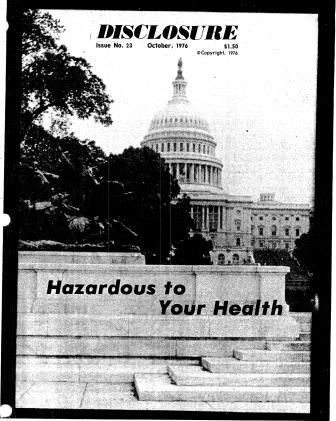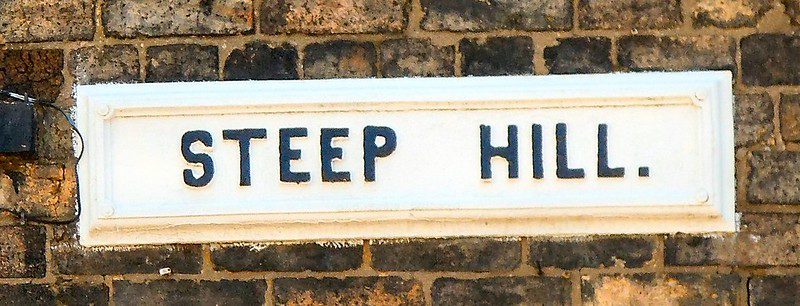
A cover of the Disclosure newsletter, courtesy of the author
I was interviewed last month for a book on redlining that took me back to the ‘70s. Going through my file of the national newsletter DISCLOSURE, which I edited for Gale Cincotta from 1974 to 1984, got me thinking: government has always required challenging by its citizens. In fact, you can say that is the citizen’s job. This and a robust media are essential for enabling citizens to exercise their rights.
Disclosure remains as much our right today as it was as a national demand in 1975 for Congress to pass the Home Mortgage Disclosure Act, or HMDA. (As we all prepare to file our 2016 tax returns, what’s the betting pool on whether the president ever discloses his?).
I still wonder why the U.S. Senate couldn’t have waited a week to see what Scott Pruitt’s emails to the fossil fuel industry disclosed before confirming him as head of the EPA. I’m not even going to speculate on the Russian spy novels being written in the absence of full disclosure of what Michael Flynn was up to before he resigned as national security adviser. And now, there’s Attorney General Jeff Sessions.
Congress used to insist on its own right to know as our elected representatives. Midterm elections in 2018 should be interesting if members of Congress don’t get over their self-imposed “don’t-ask-the-emperor-about-his-clothes” behavior.
Then there is the forthcoming effort to repeal consumer protections, as the Consumer Financial Protection Bureau (CFPB) sits in the crosshairs. This year marks 40 years since Congress passed the Community Reinvestment Act (CRA) to ensure fair and responsive investment, yet redlining is alive and will be rampant again if the Trump administration and Congress collude to deregulate financial services. The effectiveness of CRA has always been subject to vigorous enforcement by its regulators. Our country won’t be “great again;” it will be “broke again,” by Wall Street greed.
For all these reasons, I’m looking forward to convening with other community development colleagues in Washington, D.C., at the National Community Reinvestment Coalition (NCRC) 2017 Annual Conference, Creating a Just Economy. It may be “last call” to hear from responsive bank regulators, like keynote speakers Janet Yellen, chair of the Federal Reserve; Thomas Curry, comptroller of the currency; and Richard Cordray, director of the CFPB. It’s not clear who President Trump will nominate to these crucial positions; perhaps the highest bidder?
In this new era of “fake news,” the inherent value of independent journalism institutions like Shelterforce, the nation’s oldest continually published community development magazine, is even more imperative. Since 1975, it has been our forum as organizers, advocates, practitioners, and policymakers. Shelterforce remains a place where we can share, on a weekly and quarterly basis, our strategies and stories in addressing the challenges and advancing best practices in affordable housing, equitable economic development, neighborhood revitalization, and community organizing for those most vulnerable.
We must persist in doing so if our communities are to endure a Trump administration. As Gale would remind us, the next move is always ours.
(Image: A cover of the Disclosure newsletter, courtesy of the author)






Comments